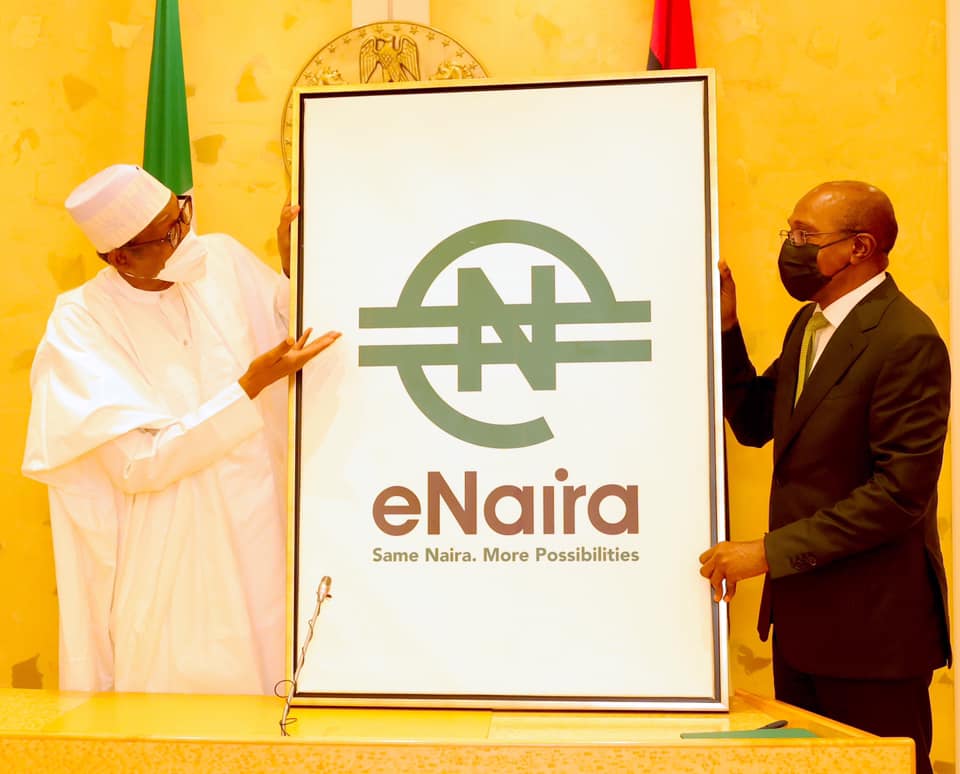Credit: AK&CO Barristers & Solicitors

Introduction
The Central Bank of Nigeria Act 2007 and the Banks and Other Financial Institutions Act (BOFIA) 2020 empowers the Central Bank of Nigeria (CBN) to issue legal tender currency, ensure financial system stability and promote the development of electronic payments system in Nigeria.
Download this article HERE.
Following the CBN ban on cryptocurrency this year, the CBN recently introduced and launched the eNaira on the 25th October 2021. The eNaira is the Nigerian digital currency issued and regulated as a legal tender, in line with Section 19 of the CBN Act. It is also a digital form of the Naira currency which serves as a mode of storing value and a medium of exchange, just like cash. The aims of the eNaira are to improve monetary policy effectiveness, enhance government’s capacity to deploy targeted social interventions and boost remittances through formal channels. The eNaira yields no interest.
It is the intention of the Central Bank of Nigeria that the eNaira complements, and not replace, the physical Naira currency, in order to make financial transactions easier and seamless for different strata of the Society. The CBN solely determines the technical, regulatory, and operational standards for the eNaira, from time to time.
Administration and Onboarding of the eNaira
The eNaira shall be administered by the CBN through the Digital Currency Management System (DCMS) to mint and issue eNaira, that is, it is the sole responsibility of the CBN to issue, distribute and destroy the eNaira digital currency. It is also the sole responsibility of the CBN to issue directives and review guidelines on eNaira, periodically, as may be required.
Financial Institutions are intermediaries between the CBN and customers, therefore, they shall integrate the eNaira speed wallet feature into their electronic banking channels, which most of the Financial Institutions have complied with as at date.
RELATED Buhari Launches Nigeria’s ENaira
The onboarding of Financial Institutions on the eNaira platform is automatically done by the CBN, however, Merchants are onboarded by the Financial Institutions upon downloading the eNaira Speed Merchant app and fulfilling certain requirements.
Consumers, on the other hand, are onboarded by the self-service option upon downloading the eNaira Speed App and fulfilling certain requirements. Financial Institutions make use of the Financial Institution Suite, being the primary application used, to manage their digital currency holdings, requests, and redemption with the CBN.
Merchants shall ensure that customers are provided with alternative channels for making transaction by using the eNaira and to provide cashback services for customers. Merchants are to ensure that the eNaira speed wallet credentials are protected against fraudulent activities.
The eNaira Wallet
The eNaira wallet is a digital storage that holds the digital currency, wherein its users can access, hold and use the eNaira. The eNaira wallet can be linked with one’s bank account or can be used as “pay as you go” with a “prepay” option. Ministries, Departments and Agencies may also receive their revenue in eNaira and also make payments via the eNaira wallet platform.
The eNaira can be transferred between bank accounts and eNaira wallets. There are different forms of wallets hosted on the eNaira platform and they include:
a.) eNaira Stock Wallet: This Wallet belongs solely to the CBN, wherein all minted eNaira are warehoused and kept.
b.) eNaira Treasury wallet: An eNaira treasury wallet is received from the CBN eNaira stock wallet and required to be maintained by Financial Institutions, for the holding and managing of eNaira on the Digital Currency Management System (DCMS).
c.) eNaira Branch Wallet: This is an eNaira sub-treasury wallet created by Financial Institutions, for its branches. The sub-treasury wallet is funded from the Financial Institution’s eNaira treasury wallet.
d.) eNaira Merchant Speed Wallets: This is used solely for the purpose of receiving and making eNaira payments for goods and services, generally for business.
e.) eNaira Speed Wallets: This is made available and used by end users to transact on the eNaira platform. Upon the onboarding of users on the eNaira platform, users will be required to disclose whether the eNaira speed wallet created will be operated for self or as trustees.
Upon the installation of the eNaira wallet, charges for transactions that originate from the eNaira platform will be free from the first 90 (ninety) days. At the expiration of the 90 days, applicable charges will be deducted for transactions, in line with the Guidelines on Charges for Banks, Other Financial Institutions and Non-Bank Financial
Institutions.
Also, upon the creation of the eNaira wallet by each stakeholder, unique identifiers such as Tax Identification Number (TIN) will be used for corporate entities, National Identification Number and or Bank Verification Number will be used for individuals whilst Bank Verification Number will be used for merchants that are not corporate entities.
It is the duty of the Banks to ensure that eNaira end users have access to an array of channels, in order to report loss or theft of device or gadgets or the compromise of the eNaira merchant speed wallet and further facilitate the prompt placement of restrictions on the eNaira speed wallets where the report of loss or theft or compromise of the eNaira is made. It is also a prerequisite that banks ensure that its customers can easily lodge and make complaints via USSD channels, customer care phone lines or internet banking platforms. The Banks have obligations to make reports to the CBN regarding the number of reports received and actions thereon taken, including timelines, if any.
Dispute Resolution for users of the eNaira Platform
The Clause 15.0 of the Regulatory Guidelines on the eNaira, 2021 is to the effect that Consumer complaints in relation to the use of the eNaira shall be referred to the helpdesk of the users’ preferred Financial Institution and if unresolved, it may be escalated to the eNaira helpdesk for resolution. However, complaints from Financial Institutions as well as disputes arising between financial institutions shall be reported to the eNaira helpdesk team and same shall be resolved within 2 (Two) working days.
From the foregoing, should one or both parties to the dispute be unsatisfied with the resolution, it shall be referred to an Arbitration Panel, in line with the Arbitration and Conciliation Act or as may be defined by the CBN, from time to time.
Conclusion
The eNaira is, undoubtedly, a welcome development as it will be a catalyst for enhancing the Nigerian digital economy and a more financial inclusion system in line with global trends. Also, the eNaira will facilitate the ease of doing business in Nigeria, enhance means of payment for transactions carried out both locally and internationally, and have an impact on the value of the Naira in the long run, howbeit indirectly. It suffices to state that the eNaira is a digital representation of the Naira itself; it does not strengthen it, neither does it possess a higher value.
However, beyond these perceived benefits, other pressing matters have direct impacts on the strength and value of the Naira such as the level of production, security issues and the forces of demand and supply.
The CBN as well as Financial Institutions and Other Financial Institutions should ensure that adequate security measures are constantly put in place to prevent the issues of fraud or hackers from accessing customers’ details and performing unauthorized transactions via the eNaira wallets.
NOTES
1
(1) The currency notes and coins issued by the Bank shall be-
(a) in such denominations of the Naira or fractions thereof as shall be approved by the President on
the recommendation of the Board; and
(b) of such forms and designs and bear such devices as shall be approved by the President on the
recommendation of the Board.
(2) The standard of weights and composition of coins issued by the Bank and the amount of remedy and
variation shall be determined by the President on the recommendation of the Board.






























